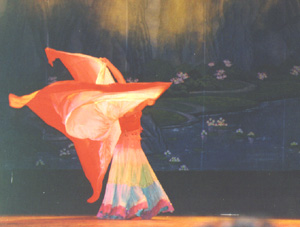
ABSTRACT
Minority peoples of China are now in the media, big-time: coffee table books, TV documentaries, Spring-Festival Galas, feature films, large-scale public performances, newspapers and magazines. The process of how this has happened, with accelerated speed in the Reform Period in particular, provides a window on one way in which the Chinese state is attempting to build a multi-cultural nation, and on the role of ethnic minority elites and ordinary people in this process. Not only do the Chinese mass media offer myriad images and representations of the minorities, their lives, and their role in the nation; at the same time minority elites have adopted and adapted the mass media as a means of more effective communication of cultural knowledge and as a channel through which they can represent themselves to the people of China (including themselves) and increasingly of the world. In this way, minority cultural elements and the mass media transform each other. The Yi, a minzu of around 7.5 million people living primarily in Sichuan, Yunnan, and Guizhou, can offer a case-study of this process of appropriation of minorities by the media and appropriation of the media by minorities.
Full text with hyperlinks
Media represented in this study:
Mass media adapted to Yi use
Medium: Standard, printable script:
Textbooks
Editions of old works
Newspapers and magazines
Medium: Performance
Standard dance tapes
Public performance of the local
Folk-music recordings
Medium: Public visual art
Factory lacquerware
Modernized needlework
Mass media used to represent the Yi
Medium: World-language (Han and English) scholarship
Books:
Perspectives on the Yi
¼™Õ’‹ß׉³Õ‹ß¬¤‘ŸºØ
Conferences:
Third International Conference in Shilin
Medium: Exhibits
"Mountain Patterns" Exhibit
Scholarly critique in Asian Ethnicity
TV documentaries
Shilin National Park
Medium: Performance
Theater song and dance performance
Pop and rock music